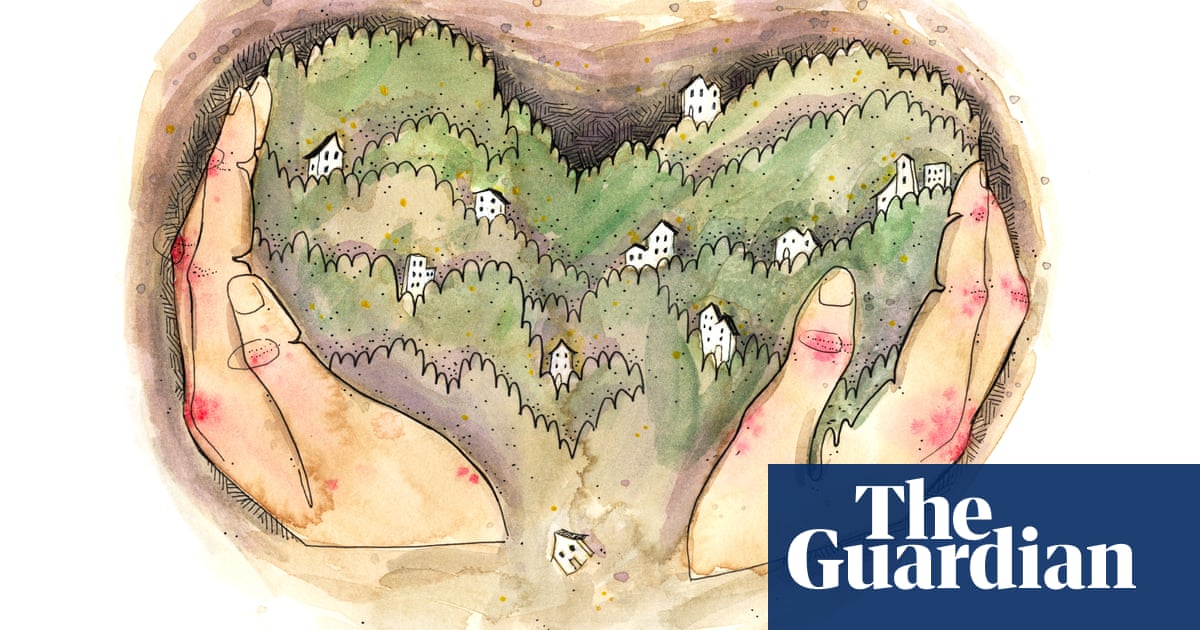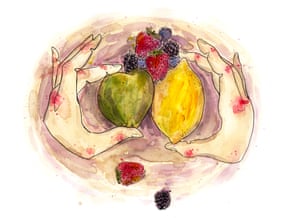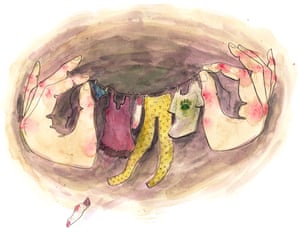Categories
Archives
- June 2024
- May 2024
- July 2023
- May 2022
- March 2022
- February 2022
- November 2021
- March 2021
- May 2020
- April 2020
- March 2020
- February 2020
- January 2020
- December 2019
- November 2019
- October 2019
- September 2019
- August 2019
- July 2019
- June 2019
- May 2019
- April 2019
- March 2019
- February 2019
- January 2019
- December 2018
- November 2018
- October 2018
- September 2018
- August 2018
- July 2018
- June 2018
- May 2018
- April 2018
- March 2018
- February 2018
- January 2018
- December 2017
- November 2017
- October 2017
- September 2017
- July 2017
- March 2017
Can you afford to be green when you’re not rich? I kept a diary to find out
Can you afford to be green when you’re not rich? I kept a diary to find out
Politicians and corporations have placed the burden of environmental responsibility on the consumer but how easy is it to go green when youre barely getting by?

How easy is it to go green, to make deliberate, eco-friendly choices when youre barely getting by? Can you be green and poor, as I am?
This is the question I have been pondering as politicians and corporations have placed the burden of environmental responsibility on the consumer: stop using plastic straws, carry reusable shopping bags, recycle everything.
I live in an environmentally conscious place: a rural town with thriving local food businesses, a farmers market and many organic farms. But its also a small town in central Appalachia, in the poorest county in my state: Ohio. Many people here go hungry. They cant afford food, let alone organic food. A gas station is the closest source of groceries for some people without cars. You cant walk everywhere if you live in the country.
For a week, I kept a diary with some of the choices I made toward being green.
Monday
I make my sons lunch for camp. I got rid of most plastic in the kitchen several years ago I dont buy disposable plastic bags, plastic wrap or plastic storage containers but reusable cloth bags dont hold much, and most dont keep food from going stale, even for a few hours. Theres mold spotted on one of the cloth bags I take out of the drawer, even though I wash, bleach and dry them. Any disposable plastic bags I have because my mom sends snacks in them for her grandson, for example I wash and carefully dry.
I bought my parents beeswax wrap, which I love: reusable, washable food wrap that molds around leftover food, using the heat of your hands, and recently my mom purchased paper and aluminum drinking straws. But its been a bit of a struggle to persuade the older members of family to make green choices: its new to them, and it seems like extra work, because it often is.
My son, a rising third-grader, told me that his school can recycle cans only if the cans are totally empty. But theres no place or opportunity to dump the liquid in the cafeteria, and he doesnt have enough time in his 15- to 20-minute lunch period to drink a full can of seltzer or juice without chugging it and getting a stomachache. This was a source of anxiety for him, so I stopped packing cans.
I feel that most parents are trying to do their best, despite our often-difficult circumstances in this region, but its hard to balance childrens needs, finances and eco-consciousness.
Its hot this summer, usually intense and early, even for swampy Appalachia. Camp is just a 10-minute drive away, but we couldnt walk it in this heat and with an eight-year-old who is already not thrilled about going to camp so his single mother can work. The rain cools things off enough to open the windows.
Todays expenses: beeswax wrap, $18.99 for three wraps
Tuesday

So many of my decisions are made by time. Theres a bus station by my house, but the bus comes irregularly, and I only have so long before my son returns from his second day of camp, hungry and wanting dinner. I drive 10 minutes to the small Aldi.
Shopping at a discount grocery like Aldi makes it difficult to meal prep because you cant really plan on whats going to be there. But when I was laid off from my full-time job in March, I swore I would primarily shop there, or a similarly priced store. Doing so has cut my grocery bill by at least $40 a week. I havent been able to find full-time work yet, and I get by with a lot of freelance writing and editing, which means I need to keep my grocery bill low.
But Aldi doesnt have everything I need, like breakfast burritos and tofu for my mostly vegetarian kid, so I have to hit Kroger, too. Fortunately its on the way back home. Im not wasting gas, only time, but I do spend a lot of money for just a few items at Kroger: the eco-friendly dish soap that is not available at the discount store, the recycled paper towels.
I spend $50 at Aldi for the bulk of our meals for the week. And I spend $59 at Kroger for just things. Id like to buy local meat I feel it tastes better, has fewer hormones, and I like supporting local farmers but to do so, I would have to go to yet another grocery store, this one clear across town. This third, smaller store has issues with shelf stability: items dont sell quickly enough not to go bad sometimes.
Often, I shop at the health food store. Its expensive but locally-owned, and along with herbs and vitamins, they have organic food, frozen meat and vegetarian food. My son and I can walk there, and usually do. Just a few months ago, another, much bigger health and organic food store opened, which is even closer to our house. Ive only been in the new store once. It looks like a mini Whole Foods and is priced as such. What this community needs isnt another pricey organic food store; I worry it could put the older, more established local health food store out of business, and it still doesnt bring affordable, fresh produce to the people who need it most.
I bring my own reusable bags to Aldi, which is a requirement and it helps if you have to buy or bring shopping bags every time, you will remember to bring them. And I use another of my own bags at Kroger. After unpacking groceries, I return the bags to my car and keep them there.
Todays expenses: $59.28 at Kroger for 11 items, $50.06 at Aldi for 21 items
Wednesday
My son and I live alone in an old house, over a hundred years old, which I rent. As a renter, there isnt a lot you can do. My house has new windows on the top story, but the original ones on the bottom, most of which dont open. In the winter, I seal the windows to keep in heat, and seal the drafty kitchen door, closing it off for the season. I change the furnace filter regularly and have blackout drapes on many of the windows, which can help keep the house warm or cool.
But in the summer, like in many old houses, the downstairs is OK and the upstairs sweltering, too hot to sleep. I have two window air-conditioning units, given to me used. I feel terrible about running them, but am forced to sometimes to escape the high humidity, and 90-plus degree heat we have had this spring and summer.
One of my neighbors has a fantastic, almost full-roof display of solar panels, but she owns her home. I can see her panels glinting in the sun from my porch.
Todays expenses: blackout curtains, $34.95 for two; furnace filter, $36 for two
Thursday

I am someone who was raised in the country, and while I dont think I ever really made it into the middle class as an adult, my circumstances certainly lessened when I became a single mother, then lessened again when I was laid off. For me, having a dishwasher would be a marker of success. Im not there yet.
I have thought about purchasing a standalone dishwasher, but our older kitchen is extremely small. I dont have the counter space for a counter dishwasher. So, even though I have read a dishwasher can actually use less water, I have to wash dishes by hand.
I wash all of our clothes in cold water in the washing machine. I dont wash my own shirts or jeans every time I wear them, both to conserve water and electricity and to extend the longevity of clothes. But my sons clothes, stained with mud, grass and paint, I have to wash often.
I hang most of our wet clothes to dry, which is another time-suck and one of my least favorite chores, but prevents the energy usage of the dryer and keeps some shirts from shrinking.
Todays expenses: hand washing dishes: about 50 cents a batch;washing clothes in cold water: about $1.50 a load
Friday
My son and I are traveling this weekend: flying, which is not an environmentally conscious thing to do. We dont travel often, but this is a special, long-planned trip to visit family in Colorado, way too far to drive with a small child and my 18-year-old Honda. I would love to replace my car. I know a new model would be more gas efficient, but its not possible for me right now financially. A hybrid, or any new or used car, is simply out of my reach.
One of the impacts of our current eco-consciousness is some people feeling bad for decisions largely out of their control and many people not feeling bad for actions they can control. I feel guilty for flying to see loved ones. Do executives at Coca-Cola feel guilty for their massive plastic pollution?
Somehow I doubt it.
The inventor of Keurig K-Cups, a source of mounting plastic pollution, did publicly express remorse for his invention. I was gifted a Keurig coffee maker, but used the refillable attachment, putting in my own ground coffee rather than the plastic cups. When that coffee maker broke, I started using a simple French press.
You can purchase carbon offsets to try to mitigate some of the environmental damage done by flying. The idea is to invest in green options, like wind farms. This is not something I have done before, and I have to admit, its a little overwhelming and confusing, especially as many carbon offset companies work directly with airlines and other corporations now.
Were taking a direct flight to Denver, which helps cut down on more unnecessary travel pollution, and we carpool to the airport. I bring empty reusable water bottles for myself and my son, and fill them up after security.
Im disappointed to see the recycling and trash cans at my airport look exactly the same: the recycling can is overflowing with trash. Some airlines mention, as the flight attendants collect items after the drink service, that they recycle those cans and little plastic cups. But do they?
Todays expenses: glass French press for coffee, $28.00
Saturday
I havent bought much new clothing for years. Part of that is out of necessity. Not only can I not afford it, I live in an area without many shopping options. We have a mall, but more storefronts are empty than occupied. The closest Target is across state lines. The biggest clothing retailer in my town is Goodwill, and all my friends and I shop there, and at other, local charity-based thrift shops.
Its normal in my town to wear used things something I believe should be normalized everywhere: not to be sporting the latest trend, but to be wearing a piece that meant something to someone you know, that has a story or history. For an item to take up space in this rapidly filling world, it should really matter.
Its so typical to wear used clothes where I live that my friends and I hold clothing swap parties, where we bring bags of clothes that dont fit any more or household items that we no longer need, and shop each others closets. Once, it would have mortified me to be out wearing a dress that a friend pointed to and said: that used to be mine. Now its a source of pride. Clothing connects us. Its more than just fast fashion. That shirt brought me luck, someone said when I held up a red T-shirt at a clothing swap. Maybe it will bring you luck too.
I didnt buy anything new for my trip to Colorado. My sneakers are several years old. I wash them carefully, and replace the laces. I do have to buy new shoes for my son often, as kids grow quickly. I sometimes buy items from ThredUp, an online resale clothing shop, and I sell clothes to them as well, usually saving up credit for trade so I dont have to spend a dime.
In Colorado, after eating at a restaurant, I feel nervous asking for a box for leftovers, fearing the worst: Styrofoam. But at every restaurant in Colorado that we patronize, the carryout boxes are recycled or recyclable cardboard.
I dont think we talk enough about how the America consumers attempts to go green involve so much uncertainty and lack of agency. Starbucks, for example, gives me a plastic fork for a sandwich I order and certainly dont need a fork to eat with. They dont ask first if I want a fork, and should. I leave the fork unwrapped and give it back. But will they just throw it away?
Small choices like this feel huge but many of them arent even choices we as individuals can make. I cant bring my own takeout containers to local restaurants in Ohio its a health hazard, according to the restaurants. On our Colorado trip, my mom was amazed at a store that sold soap and shampoo by the barrel you bring your own containers to fill. There are no stores like that near me.
There are no bins or instructions about recycling in the Airbnb we have rented. So we pitch all the empty cans, bottles and cardboard into a couple of grocery bags, and at the end of our trip, trek them back down the mountain to my boyfriends mothers house in the city (sorry, Judy), where they can be recycled.
Todays expenses: a pair of kids sneakers, used, about $16 ($35-40 new)
Sunday
A couple of years ago, inspired by several classmates, my son decided he was going to go vegetarian. Recently, he has started eating some meat again: chicken fingers, pepperoni pizza, but for the most part, we only eat meat two or three times a week. This does a lot, both for health my dads doctor commended my son for getting his grandpa to eat less meat, and my dads subsequent weight loss and lower cholesterol numbers and for the environment.
But eating vegetarian isnt always easy, especially in rural Appalachia, and it isnt always cost-efficient or healthy. Many of the meat substitutes I have bought my son soy bacon, bean burgers cost more than meat, and are much harder to find, requiring special trips.
Which means more gas. And more time.
Time is a resource, especially for women, people of color, people who are disabled and people who are poor, and to ignore the impact of time on environmental choices is to ignore the reality of many peoples lives. People have to work multiple jobs, have to travel for work or groceries, dont have recycling available, dont have enough childcare to spend precious hours hanging laundry or washing plastic bags.
A lot of things arent easy in my Appalachian home: finding work, finding and affording a place to live. Why did we think being green would be any different?
When it comes to the environment, I am not alone in feeling a prevailing sense of guilt and concern. I have felt this a lot of the time, since I was a child and first heard in school about the depletion of the ozone layer.
We live in a time of such dread. We walk with and through dread constantly. Dread is our companion in 2019, and also the feeling of futility. So many news sites have tossed about data and studies on how long until we run this planet into the ground. The dates vary, but its not long. Not long at all. Its overwhelming to think the burden of keeping the world alive rests on the shoulders of consumers. And frankly, it shouldnt. Not entirely.
People need help from the companies that got us into this mess in the first place with their products and pollution. People need incentives but also, assistance on how to be green. You have to offer and clearly label recycling bins, for instance. Fresh, affordable produce needs to be available before we can focus on organic.
In order for people to make eco-conscious choices, there has to be an eco-conscious choice available for them to make. For many places, especially in rural and impoverished America, those choices simply dont exist, not yet.
Todays expenses: veggie hotdogs, $5.79 for four
Read more: https://www.theguardian.com/lifeandstyle/2019/jul/29/eco-friendly-going-green-poor-cost-diary

